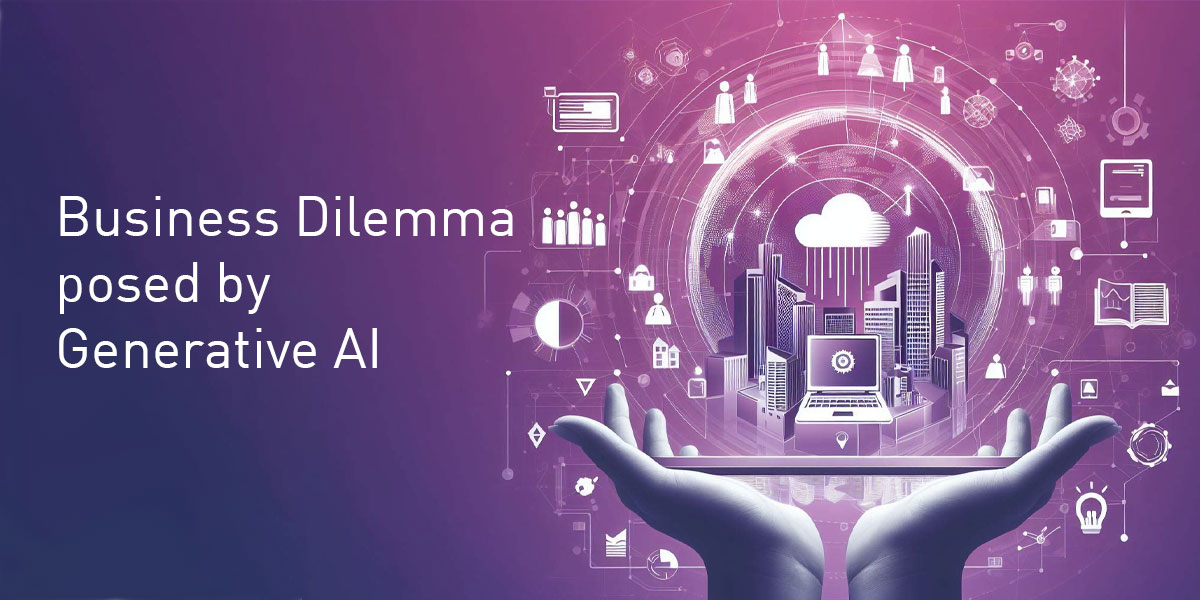Necessary cookies are absolutely essential for the website to function properly. These cookies ensure basic functionalities and security features of the website, anonymously.

Why I'm not talking about AI so much now and what I'm switching to instead
Recently, I found myself speaking at an event in Sri Lanka, under the weather from travel and illness, and once again explaining the new AI technologies to an audience not trained in data analytics. People are scared at the moment and a large part of my job is to bring things back to a sensible starting point. I often use the parallel of the 1990s when trying to explain the changes we’re about to experience. Back then, communication went digital. Communication is so fundamental to how organisations operate that we had no choice but to learn to use communication technologies, though great communication skills were still needed. Today, decision making is going digital. That, too, is central to the way that we work. Learning to use decision technologies will not be optional.
And as the unplanned words came out of my mouth, I realised ‘decision technology’ is a much better term than any other phrase I’ve used before to describe the technologies coming to maturity today. It explains immediately what they do, why we all need to learn to use them and why we still need to be able to make the final decisions. These technologies cannot be left to the programmers any more than we left them to create social media content.
What is intelligence?
One of the big challenges in talking about Artificial Intelligence is that there has been no single definition since its introduction into our vocabulary back in the 1940s. Even the Office for Artificial Intelligence, the UK’s AI body, shies away from offering a definition of the term. It also doesn’t help that it’s been co-opted by the science fiction authoring community for so long.
I have always admired the work of Nick Bostrom, Professor at Oxford University and Director of the Future of Humanity Institute. He has tackled the implications of creating machines that think from an eminently practical point of view. What rights should we assign to machines when they demonstrate, say, the same level of thought as a mouse? In many societies we do not tolerate cruelty to animals because of what it says of us as human beings. The reality is that, although machines today seem intelligent – and we are freely using the term Artificial Intelligence – they are still a very, very long way away from even mouse-like intelligent thinking and the term is misleading.
The superhuman capabilities of machines
We do need to embrace the capabilities of machines today to help us reach better decisions, though: machines can offer recommendations which we can either take into consideration or ignore; they can also draw our attention to areas where humans are notoriously biased. We are all expert at predicting the optimistic outcomes of our actions, but in general very poor at seeing the risks that we are taking. Machines can be brutally honest about where our excellent plans might take us.
So, from now on, I’m using the term decision technologies and will be leaving the term artificial intelligence well alone unless asked. After all, when a machine starts to actually think intelligently then it shouldn’t be considered artificial in any case – it is real intelligence. We should embrace these technologies where they produce superhuman performance, such as playing chess or spotting patterns in data sets too vast for human inspection, or just making a decent decision at 3am in the morning when the humans are too exhausted to function properly.
Modern machines are about supporting decisions, and replacing human decision making only in highly routine and predictable cases. If we can all turn our attention to how their superhuman capabilities can be used for the benefit of humanity, we might just like the results that we get in the end.
For more on Nick Bostrom’s work, see https://nickbostrom.com/






